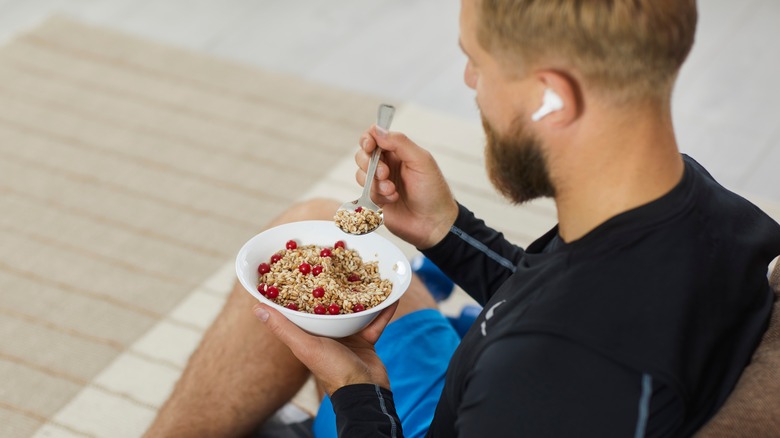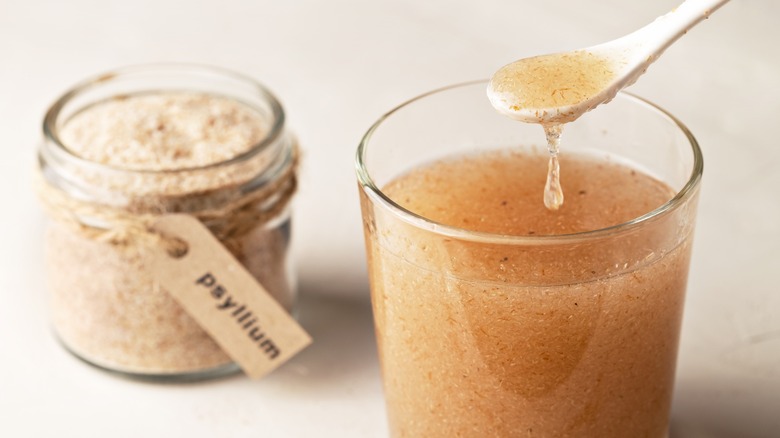The Specific Type Of Fiber That Can Help You Lose Weight
Fiber can protect you from heart disease, diabetes, and inflammatory bowel disease, according to the American Heart Association. It also helps lower your cholesterol and flush nasty toxins out of your body. Although the U.S. Department of Agriculture recommends 25 grams of fiber a day for women and 38 grams for men, most people in the United States only average 16 grams a day.
According to Healthline, fiber is a type of carbohydrate that takes its time moving through your digestive system. There are two types of fiber: soluble and insoluble. Soluble fiber dissolves in water, and insoluble fiber helps form your stool. Although both are important for your health, soluble fiber might be helpful in losing belly fat. A 2012 study published in Obesity took abdominal CT scans of people and then followed up five years later. For every 10 grams of soluble fiber consumed, people had 3.7% less visceral fat at follow-up. In other words, adding more soluble fiber to your diet is linked to reduced abdominal fat. Even more, a specific type of fiber might help you lose more weight, even without reducing calories.
Viscous fiber can help you shed pounds
According to Healthline, some types of fiber are more viscous — or thick and sticky — than others. Viscous fibers such as pectins, beta-glucans, psyllium, glucomannan, and guar gum get thicker in water. They become gel-like and take longer to move through your digestive tract. That's how you feel fuller after eating something like oatmeal versus a Pop-Tart.
A 2020 study in The American Journal of Clinical Nutrition conducted a systematic review and meta-analysis of how viscous fiber contributes to weight loss. Even when people didn't restrict their daily calories, the researchers found that adding viscous soluble fiber to the diet can reduce body mass index (BMI), waist circumference, and body weight. Although the difference was small across all the studies, the differences were much larger in studies involving people who had diabetes or who were overweight. The study suggested that consuming at least 6 grams of viscous fiber for at least 10 weeks could help with weight loss, especially when combined with other weight-loss strategies such as calorie restriction.
You can find viscous fiber in whole grains such as oatmeal and quinoa, plant proteins like black beans and chickpeas, and healthy fats such as avocado and chia seeds. Broccoli, sweet potatoes, Brussels sprouts, apples, and berries are also good sources of viscous fiber. Not only can they help you lose weight, but they can also lower your cholesterol, according to the National Lipid Association.


